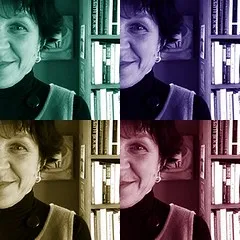Release of secret text messages between EU-Leyen and Pfizer’s Bourla also demanded by US court
Source: TKP.at, Dr Peter F. Mayer, 18 April 2024
The President of the EU Commission apparently bought around 1.8 billion mRNA vaccine doses for an estimated 36 billion euros at the beginning of 2021. So far, all parties involved have refused to hand over the text message communication, which allegedly contains around 100 messages. There is even a decision by the EU Parliament that it is okay for an order worth 36 billion to be processed in secret. Even if Leyen and the EU bureaucracy have indeed made the text messages disappear, they can still be sued in the USA by Albert Bourla. He and Pfizer have a legal obligation to retain them for 5 years.
Several lawsuits are now pending in the EU and a criminal prosecution against Leyen personally has already been initiated. At first it was said that the text messages could not be found, then the ombudswoman demanded that they be handed over, but the parliament said that they should be kept secret. MEP Michéle Rivasi was at the forefront of the fight in the EU Parliament for the release of the Leyen-Pfizer text messages and for an end to the secrecy surrounding the deal, but died unexpectedly just before an announced press conference on the matter.
The New York Times, which never commented on vaccine damage and side effects, also found the deal very strange and sued an EU court for the release of the text messages. Unsurprisingly, so far without any tangible success.
The EU Commission famously claims that “Ursula von der Leyen is no longer in possession of the text messages”. Politico has submitted a request for access to documents, to which the Commission has responded:
No text messages have been registered in the Commission’s document registration system. Considering that the messages “would have been registered if they contained important information that is not ephemeral”, this means that the text messages, if they ever existed, must not have been very important. And if they are not important, then they need not have been registered in the first place.
This means that the 100 or so text messages exchanged between Bourla and Leyen did not contain any important information. This raises the question: What content did this man and this woman communicate in their messages? Did they mix business with pleasure?
Bourla has publicly stated that of the many public officials he spoke to about buying his dangerous products, he found it particularly easy to talk to Ursula von der Leyen, who is also a doctor (gynaecologist). As reported in the New York Times:
Mr Bourla said he and Ms von der Leyen “developed a deep trust because we had deep discussions.” He said, “She knew details about the variants, she knew details about everything. That made the discussion much more engaging.”
This is reported by John Leake, among others, in his joint blog with cardiologist Dr Peter McCullough. He writes further:
It seems to me that this whole dodgy and shabby affair exemplifies how the EU Commission has become a feeding trough for special interests while treating the citizens of Europe with contempt.
To shed more light on this affair, I recently conducted an interview with French lawyer Diane Protat. She represents the Belgian lobbyist Frédéric Baldan, who has filed a criminal complaint in Belgium against von der Leyen, alleging corruption and the destruction of documents.
Ms Protat also represents the French organisation BonSens, which campaigns for truth and justice in connection with the criminal pandemic response in France.
Together with U.S. Attorney William Snyder, she is pursuing a lawsuit in U.S. federal court under Section 1782 of Title 28 of the United States Code to obtain the text messages.
Section 1782 authorises US federal district courts (i.e. a federal court) to order a person or entity “located” within the court’s jurisdiction to “give testimony or make a statement or produce a document or other thing for use in a proceeding in a foreign or international court“. Since Pfizer’s CEO, Albert Bourla, resides in New York, this law definitely applies to his communications with the President of the EU Commission.
However, in an interview with John Leake, which can be seen and heard here, French lawyer Diane Protat points out that the US court will only act after an EU court has declared the need. In the US, such communications must be suspended for 5 years.
Suggest a correction







